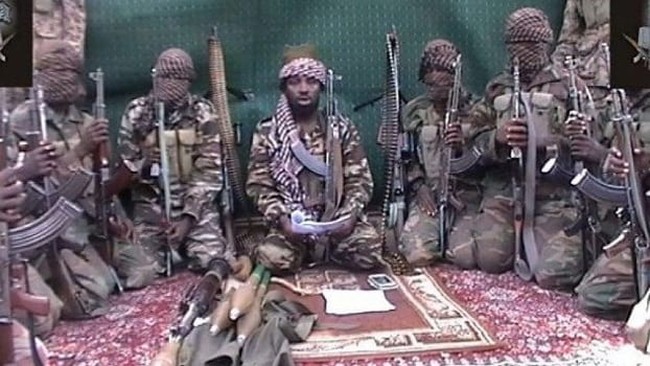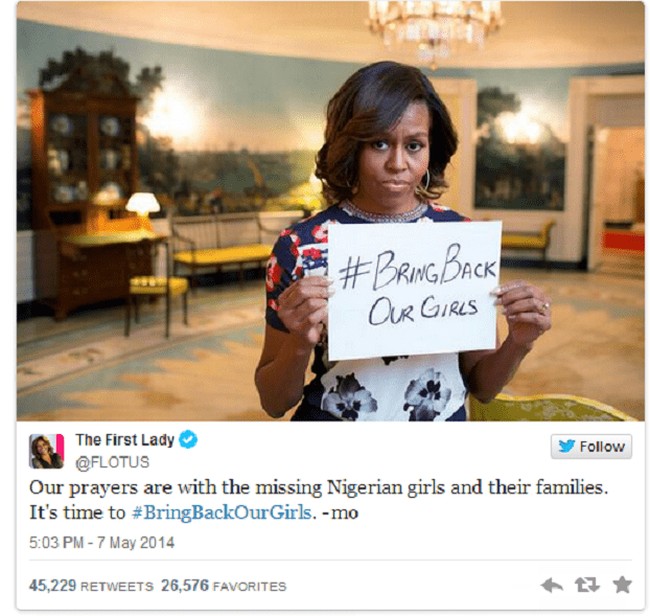To the dorm room Machiavelli’s of the Obama administration the Arab Spring (or the al Qaeda Spring, depending upon your point of view) was supposed to usher in a new era of power politics. Enthusiastic mobs of local Jeffersonian democrats, Hamiltonian federalists, and theoretical Burkeans would take to the streets, powered by texting and Twitter, to overthrow totalitarian regimes. Instead of using the means and methods of the hated George W. Bush, the US would “lead from the rear,” providing money, and in a pinch, arms, airstrikes, and drone strikes.
It would be wonderful. Democracy would flourish in the barren dystopia of the Arab world. Dictators would be packed off to exile in Geneva. No American blood and damned little American treasure would be expended. And Bush permanently discredited.
It hasn’t quite worked out that way. Libya is the case in point.
The Libyan Rebels
When the revolt first broke out against Libyan dictator Muamar Gadhafi in March, 2011, the Obama administration determined to remove him from power. Not because it was necessary, because he’d long passed his “sell-by” date as an evil mastermind, but because it could. Unlike the peaceful decamping of the dictators in Tunisia and Egypt, this would be a test bed on how to overthrow a dictator on the cheap.
The first problem was arming the rebels. Libya was under a UN arms embargo and any movement of arms into Libya would be illegal if you really care about such flummery.
Arming the Libyan Rebels
We know the Obama administration encouraged France, Italy, Saudi Arabia, and Qatar to arm the rebels. The Egyptians did so from their own volition because they shared a common ideology with the rebels: a particularly violent form of islamofascism.
We know that the idea of the US arming the Libyan rebels was hotly debated inside the administration with the State Department, under Hillary Clinton, seemingly the most enchanted with the idea of arms trafficking:
-The Obama administration is engaged in a fierce debate over whether to supply weapons to the rebels in Libya, senior officials said on Tuesday, with some fearful that providing arms would deepen American involvement in a civil war and that some fighters may have links to Al Qaeda.
The debate has drawn in the White House, the State Department and the Pentagon, these officials said, and has prompted an urgent call for intelligence about a ragtag band of rebels who are waging a town-by-town battle against Col. Muammar el-Qaddafi, from a base in eastern Libya long suspected of supplying terrorist recruits
…
While Secretary of State Hillary Rodham Clinton said the administration had not yet decided whether to actually transfer arms, she reiterated that the United States had a right to do so, despite an arms embargo on Libya, because of the United Nations Security Council’s broad resolution authorizing military action to protect civilians.
…
Gene A. Cretz, the American ambassador to Libya, said last week that he was impressed by the democratic instincts of the opposition leaders and that he did not believe that they were dominated by extremists. But he acknowledged that there was no way to know if they were “100 percent kosher, so to speak.”
We also know that John McCain (sighhhhhh) was in favor of arming the rebels,
Eventually, covert aid was authorized for the Libyan rebels and though we have no direct evidence of US running arms we know that the CIA had an on the ground presence. We know Obama was not opposed to the idea of running arms to the rebels.
Obama said the U.S. had not ruled out providing military hardware to rebels.
‘It’s fair to say that if we wanted to get weapons into Libya, we probably could. We’re looking at all our options at this point,’ the President told ABC News anchor Diane Sawyer.
And we know that $200 million worth of small arms was shipped by an American arms dealer to Qatar with an export license granted by the US government.
The case of Marc Turi, the American arms merchant who had sought to provide weapons to Libya, demonstrates other challenges the United States faced in dealing with Libya. A dealer who lives in both Arizona and Abu Dhabi in the United Arab Emirates, Mr. Turi sells small arms to buyers in the Middle East and Africa, relying primarily on suppliers of Russian-designed weapons in Eastern Europe.
In March 2011, just as the Libyan civil war was intensifying, Mr. Turi realized that Libya could be a lucrative new market, and applied to the State Department for a license to provide weapons to the rebels there, according to e-mails and other documents he has provided. (American citizens are required to obtain United States approval for any international arms sales.)
He also e-mailed J. Christopher Stevens, then the special representative to the Libyan rebel alliance. The diplomat said he would “share” Mr. Turi’s proposal with colleagues in Washington, according to e-mails provided by Mr. Turi. Mr. Stevens, who became the United States ambassador to Libya, was one of the four Americans killed in the Benghazi attack on Sept. 11.
Mr. Turi’s application for a license was rejected in late March 2011. Undeterred, he applied again, this time stating only that he planned to ship arms worth more than $200 million to Qatar. In May 2011, his application was approved. Mr. Turi, in an interview, said that his intent was to get weapons to Qatar and that what “the U.S. government and Qatar allowed from there was between them.”
When you read news coverage of the period (set your Google search dates for the period February 1, 2011 through December 31, 2011) you get the feeling that the policy consensus was that running guns to the Libyan rebels had some risks but the benefits far outweighed those risks. You find no major players writing or speaking against the idea and, curiously, coverage of the debate disappears within a week of the approval of covert aid to Libya.
Letting the Arms Get Away
To no one’s great surprise outside the White House, the weapons we directly or indirectly provided to the Libyan rebels, now known to be largely al Qaeda, slipped from western control.
The Obama administration secretly gave its blessing to arms shipments to Libyan rebels from Qatar last year, but American officials later grew alarmed as evidence grew that Qatar was turning some of the weapons over to Islamic militants, according to United States officials and foreign diplomats.
We don’t know what “some” means, but as much as $500 million worth of foreign weapons may have found their way into al Qaeda hands in Libya.
Boko Haram
Boko Haram has been in the news recently both because of their savage attacks in Nigeria, such as the one that resulted in over 240 school girls kidnapped and Michelle Obama beclowning herself with a Twitter hashtag picture.
If you look at the timeline of Boko Haram attacks, you are struck by how they coincide with the arming of the Libyan rebels and how they increase in ferocity following the death of Gaddafi. That is because those arms have made their way from Libya to Nigeria via Boko Haram’s al Qaeda connection.
Boko Haram, under the leadership of fiery, gun-toting militant Abubakar Shekau, is thought to be getting closer to achieving its dream of creating some kind of Islamic rule in the lawless areas around Lake Chad, where even the police have fled.
“They are now holding territory,” Kole Shettima, chairman of the Centre for Democracy and Development, said. “The next step is to create institutions: justice, social services,” as Malian Islamists did before the French forced them out of its cities.
The Bama attack showed their substantial firepower, including machine guns, large numbers of rocket propelled grenades (RPGs) and pick-up trucks mounted with anti-aircraft guns, a sign the weapons flood from the Libyan war that helped rebels seize parts of Mali last year has reached Nigeria, officials say.
Oddly enough, one of the reasons Glen Doherty, who was killed in the phony-scandal on our Benghazi consulate, was in Libya was to try to regain control of more sophisticated weapons, such as man-portable air defense systems, that were in circulation.
The US participation in the overthrow of Gaddafi was ill advised. For no greater reason than to make a political point, the Obama administration encouraged allies to arm al Qaeda fighters in Libya and evidence indicates that after March 2011 we were arming them directly. The result was that Libya became an armed camp and al Qaeda safe haven.
A foreseeable consequence of this policy was al Qaeda in Libya becoming a supplier of arms to its affiliates in Africa. As a result, the victory on the cheap in Libya is substantially destabilizing the northern rim of Sub-Saharan Africa.
The Obama administration has sown the wind by its benighted policy in Libya, now the resulting whirlwind is being reaped in Nigeria.














Join the conversation as a VIP Member